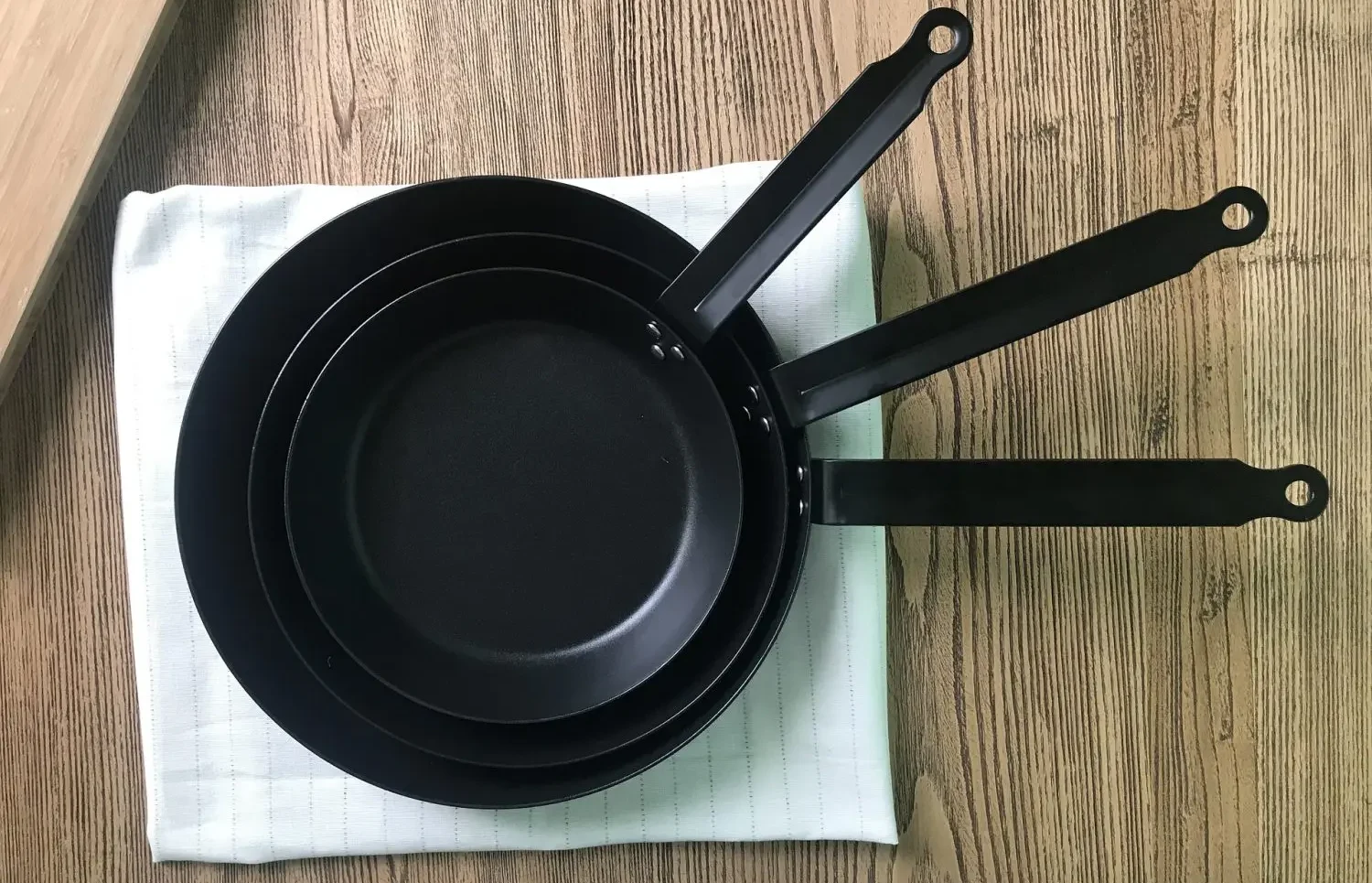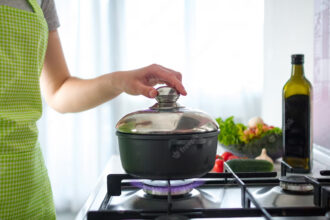Hard Nitriding Cast Iron: Know More
- 1 Definition of Hard Nitriding Cast Iron
- 1.1 Characteristics of Cast Iron
- 1.2 Properties and Limitations of Cast Iron
- 1.3 Advantages of Hard Nitriding Cast Iron
- 1.4 Applications of Hard Nitriding Cast Iron
- 2 FAQ
- 2.1 What is hard-nitriding cast iron?
- 2.2 How does hard nitriding cast iron vary from traditional?
- 2.3 How do you clean hard-nitriding cast iron cookware?
- 2.4 Do you need to reseason hard-nitriding cast iron cookware?
- 2.5 Are hard-nitriding cast iron pans safe to cook?
- 3 Conclusion
Find a proven way to improve cast iron parts’ longevity and wear resistance. Just look at hard nitriding! Hard Nitriding Cast Iron hardens the surface by adding nitrogen to the microstructure. An inner layer of hardened material provides outstanding wear resistance and hardness. Read on to discover more about this technique! This blog entry covers hard nitriding cast iron’s method, benefits, and uses. Strap in, and let’s begin!
Definition of Hard Nitriding Cast Iron
Hard nitriding cast iron combines nitrogen diffusion with heat to improve durability and corrosion resistance. This treatment hardens cast iron, making it scratch-resistant, non-stick, and lightweight. Hard nitriding released iron entails adding nitrogen-rich gas like ammonia or a solid like sodium cyanide and heating it to 1000°F in a furnace. This heat treatment alters the released iron’s structure and content. It produces a nitrided layer on the surface, improving its characteristics and suitability for diverse applications. The cast iron is flexible for cooking, machining, and other industrial uses. Due to its benefits, hard nitriding cast iron has replaced traditional cast iron and other surface treatment procedures.
Characteristics of Cast Iron
Professional chefs and family cooks love cast iron for its unique qualities.
Cast iron has certain essential qualities:
- Durability: Cast iron is wear-resistant. Without wear, it can survive high temperatures and heavy use.
- Heat retention: Cast iron conducts heat evenly. This makes it great for stews, roasts, and other cuisines.
- Non-stick properties: Seasoned cast iron produces a natural non-stick coating that makes it great for cooking eggs, bacon, and other meals without sticking.
- Versatility: Cast iron works on gas, electric, and induction stovetops. Grilling and campfire cooking are also fantastic with it.
- Rust resistance: Proper seasoning and care can make cast iron rust-resistant.
Properties and Limitations of Cast Iron
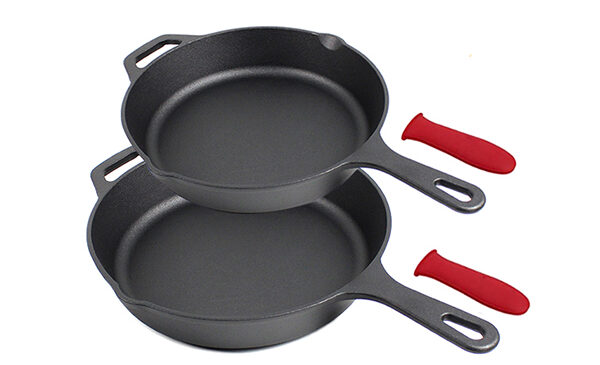
The qualities and limits of cast iron are crucial when buying cookware.
Note these important points:
- Properties: Durable cast iron retains and distributes heat well. When seasoned, its porous nature creates a natural non-stick surface. It can handle 600°F, making it excellent for stovetops and barbecues.
- Limitations: Cast iron is hefty and takes longer to heat up. Without proper seasoning, its porous nature may adhere food to the surface. Without sufficient maintenance, cast iron rusts. Avoiding rust requires rigorous drying and moisture prevention.
- Maintenance: Reseason with oil after every wash to keep cast iron non-stick. Use a scrub brush, coarse salt, and water to remove food residues. Avoid harsh chemicals or detergents that may destroy the seasoning.
- Cooking: Cast iron can fry, bake, roast, and more. Avoid extended exposure to acidic substances like tomatoes and citrus to preserve seasoning.
Advantages of Hard Nitriding Cast Iron
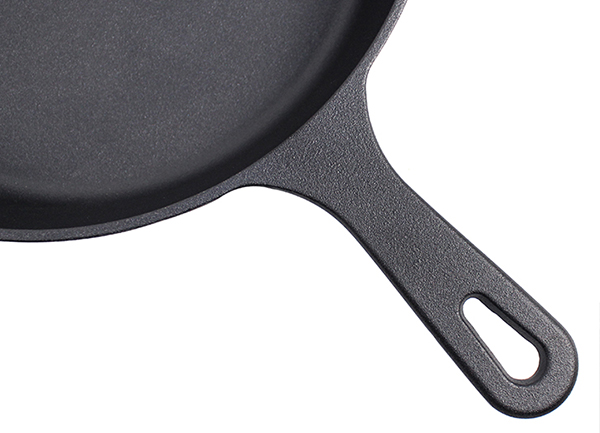
- Corrosion Resistance: Nitriding cast iron makes it sturdy and long-lasting.
- Scratch Resistance: Hard nitriding makes cast iron scratch-resistant, extending its lifespan.
- Permanently Non-Stick: Hard nitriding makes cast iron non-stick, decreasing oil and butter use.
- Lightweight: Nitrided cast iron is lighter than standard cast iron, making it easier to handle in the kitchen.
- Increased Durability: Hard nitriding makes cast iron less prone to cracking or breaking.
- Uniform Coating: Nitriding cast iron uniformly protects all surfaces from corrosion and scratches.
- No Chemical Release: Hard nitriding does not pollute the environment like other surface treatments.
- Low Maintenance: Nitrided cast iron rarely rusts, scratches, or needs to be reseasoned.
- Longer longevity: Hard-nitriding cast iron extends its longevity, minimizing kitchen waste and helping sustainability.
Applications of Hard Nitriding Cast Iron
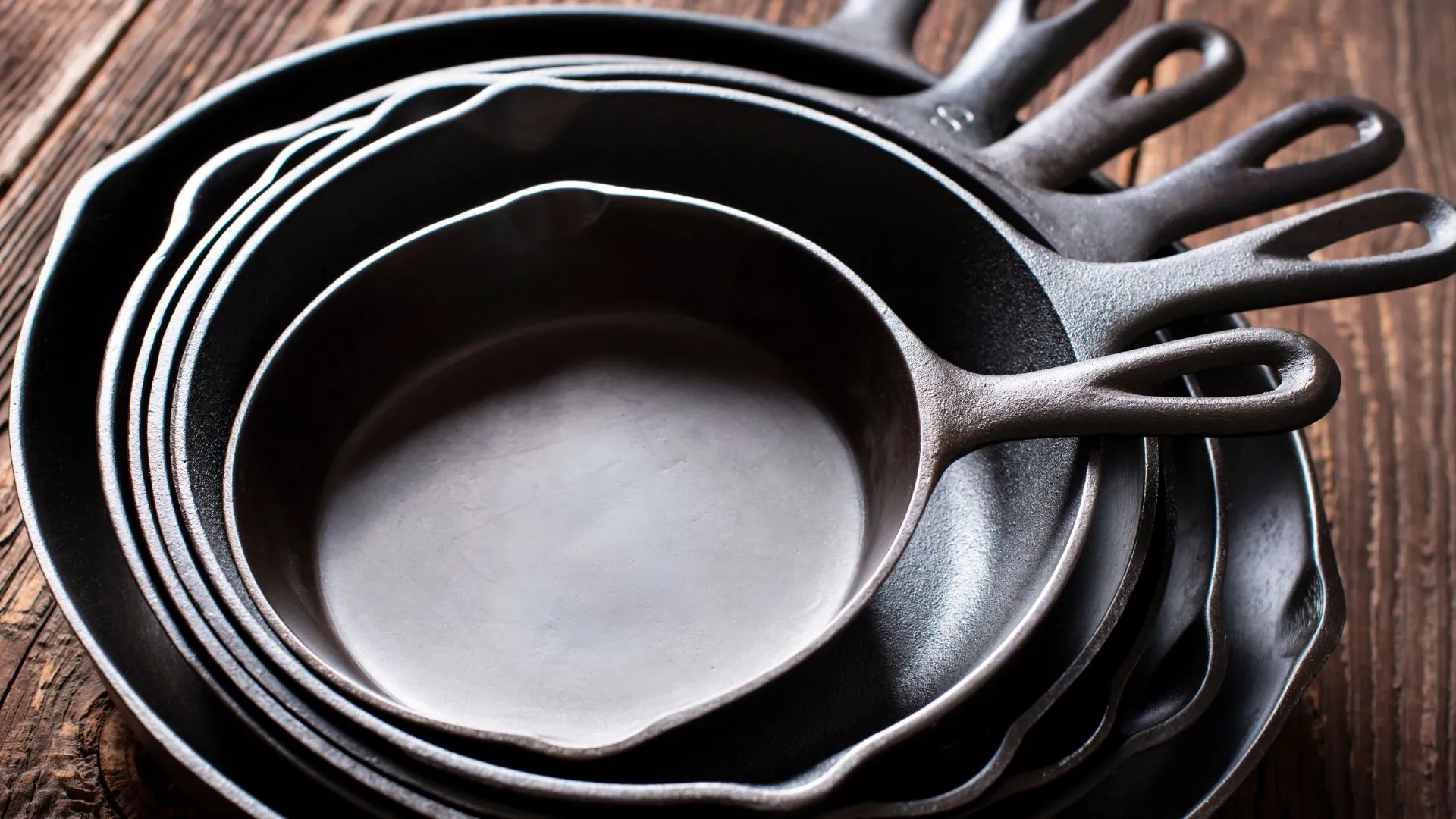
- Cooking: Hard nitriding cast iron cookware is ideal for cooks. Its non-stick and scratch-resistant characteristics make it popular in commercial and domestic kitchens. It makes griddles and waffle makers for breakfast.
- Industrial Applications: Automotive and heavy machinery manufacturers employ hard nitriding cast iron. It makes engine parts, gears, bearings, tools, and dies in metal stamping and forging.
- Aerospace: Aircraft engines and turbines use hard nitriding cast iron—excellent wear resistance, high temperature, and harsh condition resistance.
- Medical Industry: Nitriding cast iron is used in surgical tools and instruments that resist wear, corrosion, and sterilization.
- Agriculture: Hard nitriding cast iron makes tillage tools, ploughs, and other farm implements. High wear resistance and durability make it perfect for demanding agricultural situations.
Hard nitriding cast iron is used in aerospace, agriculture, and culinary. Its wear resistance and longevity make it a popular professional and personal option.
FAQ
What is hard-nitriding cast iron?
Hard nitriding cast iron uses nitrogen-rich gas or solid. This procedure permanently uses non-sticks and scratches and corrosion-resistant cast iron.
How does hard nitriding cast iron vary from traditional?
Traditional cast iron cooks well on the cooktop, oven, and outdoors. However, hard nitriding cast iron is more durable, wear-resistant, and rust-resistant.
How do you clean hard-nitriding cast iron cookware?
Cleaning hard nitriding cast iron cookware is similar to traditional. Hard nitriding cast iron can withstand more abrasion and scouring without losing its non-stick characteristics. To avoid rust, dry them properly over low heat after washing.
Do you need to reseason hard-nitriding cast iron cookware?
After cleaning, reseason conventional cast iron with a mild cooking oil to prevent corrosion and keep the non-stick coating. Reseasoning is optional for hard nitriding cast iron.
Are hard-nitriding cast iron pans safe to cook?
Hard-nitriding cast iron pans are safe to cook. They’re nitrided with a non-toxic substance for wear and rust resistance.
Conclusion
Furthermore, nitriding heat treatment strengthens and corrosion-resistant stainless steel and cast iron. Although nitriding is rare in cookware, some goods are treated with nitrogen. Nitriding your cookware may seem like an excellent way to add longevity, but it could be more safe and feasible at home. Whatever cast iron type, seasoning is essential for lifespan and non-stick qualities.

